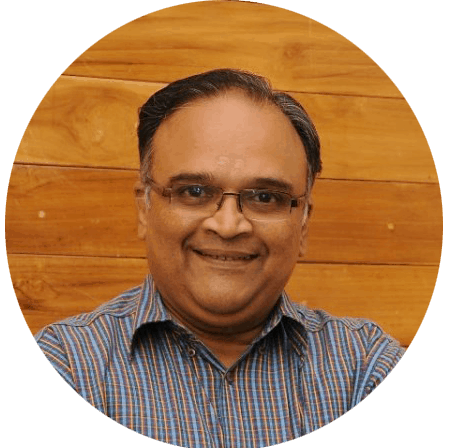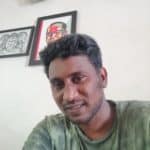Along with its distinctive icons and landmarks, if there is another unique feature that sets Chennai apart, it is the use of Madras bashai (dialect).
Dai kasmalam, ootla soltu vantiya? Bejar pannama anthanda po!
Familiar sounds, for anyone who has ventured on Chennai roads! Unique to the capital city, the dialect is believed to have evolved over several centuries, as Madras was a port city. Many people from other states travelled to the city, and as they assimilated with the population, the city absorbed many words from their languages into its lexicon.

Part of present-day Arani (about 100 km west of Chennai) was once within Madras, so naturally, the Telugu influence can be found in the dialect. “In the 1900s, when Madras was a developing city, many people from Arcot and Arani came down and settled in the city for their livelihoods. Similarly, during the Medieval period, Urdu-speaking people migrated to the port city,” historian Nivedita Louis says.
As people with different mother tongues interacted with each other, many words were borrowed and used in local parlance, and thus was born the Madras bashai. An international example, that could be used to draw a parallel to the dialect is the ‘Cockney accent’ of Londoners, which was used by the working class in their interactions.
Diversity in Madras bashai
When the British settled in erstwhile Madras, many words were borrowed from their language by the locals.

Giving an example of this, writer Indran Rajendran says, “KD is a popular word used in Chennai which means a petty thief or a smart person. It finds its roots in the abbreviated English term ‘Known Dacoit’ or ‘Known Delinquent’.
It was used by the cops back in the days of colonized Madras to classify criminals, and slowly entered into everyday usage.” Similarly the word OC (pronounced oasi) generally means free of cost. The origin of this was that the British marked their official letters ‘OCS’ – On Company Service. Many enterprising locals sent their personal letters for free, marked with the letter OCS, or just OC.
The word naina originated from Telugu, that translates to father, dabbu from Telugu which means money and kasumalam from Sanskrit that means garbage.
Indran, who also wrote the book, Chennaiyum Athan Tamizhum (Translation: Chennai and its Tamil) gives examples of words in Madras Bashai which were derived from classical Tamil.
In Madras parlance, thunnu is used to refer to ‘eat’, which came into usage from the age-old proverb Kunthi thindral kundrum maazhum (Translation: Even the hilltop will get exhausted if you sit and eat) .
“The proverb does not imply anything philosophical. Thindral was transformed and that is how thundral and thunnu came to be used,” Indran adds.
Madras bashai in movies and books
Historians largely credit Tamil movies for taking Madras bashai to the masses. The earliest reference in films was made by actor N S Krishnan in the Katha Kalakshepam scene of Kinthanar Sarithiram movie. Film historian Mohan V Raman also speaks about actor Chandrababu’s efforts to popularise the slang. “The actor was a resident of Meesapettai. He used to listen to the dialect and mastered it,” Mohan adds.
On the theatre front, actor-journalist Cho Ramaswami extensively incorporated Madras bashai in his stage plays and movies. One of the most notable examples is the song Va Vathiyare Utanda from the movie Bommalattam, written in the Madras dialect.

In the present day context, a lot of movies have adopted the slang. Notable songs include Danga maari from Anegan and Aaluma doluma from Vedalam. However, Mohan notes that the dialect has evolved to a greater extent.
“The words used in the Danga maari song are quite new and not the same as what the earlier actors used to speak. The dialect is continuously evolving due to the changing landscape. People casually pick up words from other languages and use it every day in the conversation,” Mohan says.
Indran Rajendran, Shalin Maria Lawrence, Tamil Prabha and Karan Karki are some of the modern-day writers who have written about Madras bashai in their novels/works and used the dialect to write poems. However, historians strongly emphasise the need to document the lexicon.
“For instance, every speech of John F Kennedy was documented/recorded; hence it is easy to identify how English has transformed over the years since then. Unfortunately, we do not have such records of Madras bashai for research and analysis,” Mohan says.
Nivedita feels that Tamil professors should encourage doctoral students to take up Vattara Vazhakku (Ethnologue) of different geographical locations for research. “Studying the present-day lives and livelihoods of people in the city would help us document the unique dialect. Given how integral the language is to the professions of the local people, their everyday interaction influences the language people speak,” she says.
Gaana, a tool to question stigma
There is a general sense of stigma attached to the dialect. Tamil Prabha, the author of Pettai and a Chintadripet resident, feels it is due to the typified characters who speak Madras bashai in movies.

“In many films, the character who speaks Madras bashai would typically belong to the lower rung of society — a thief or a hooligan. Such portrayals should change,” Prabha says.
Gaana is a music genre that is generally used to express simple emotions like love, grief and happiness. As people began realising they are being discriminated, artists of the present-day are using Gaana as a tool for questioning the differences.
“Due to the stigma attached, people who speak Madras bashai, are now using Gaana as a means to express their angst on the lack of respect,” says Prabha, who is working as a co-scriptwriter with director Pa Ranjith on his upcoming film, Salpetta.
He adds that Casteless Collective, a Chennai based Tamil-Indie band that composes songs on socio-political themes, has given a modern cultural evolution to the dialect. “They talk about North Madras, reservation and identity crisis through music. There is an entirely new flavour to Gaana; it is not limited to use just for conveying simple emotions,” Prabha states.
Madras bashai is thriving and spoken by many in the city. For this, Prabha largely credits the importance given to the dialect in movies. Many present-day Kollywood directors and artistes are attempting to normalise the usage of Madras Tamil.
All said and done , Madras Bashai is crude , coarse and gives a picture of a lumpen character . To get popularity and acceptance , it is sad that script and lyric writers are using it widely , virtually ruining Tamil in the process . Tamil is no more classical it’s sophisticated and pleasant quality is ruined by Madras Basha slang .
How there are lot of dialects of tamil this is also one and is used as one. There are no written scripts or anything of that sort. We have to enjoy it. Now this chennai bashai is also fading. Dont worry pure tamil will live longer and also chennai tamil which will in no way will destroy the originality both will live parallely
It’s so good to hear the classical tamil.its good to research on the Madras bashai…but it has not attained any structure to stand out amidst the dialects
Madras Bashai slang was more fun and can be enjoyed and left at that. Tamil has not been ruined by Madras slang. Tamil has been there for ages and nothing can stop this language’s heritage as other influences can only be there for a short time – in fact, the impact of English on spoken Tamil is much larger than this Madras Bashai and if one has to be concerned about the impact, then it is best to focus on the impact by English than other insignificant ones.
It is very sad and highly deplorable to see the beautiful Tamil language got spoilt due to madras bhashai. This should not be encouraged in movies.